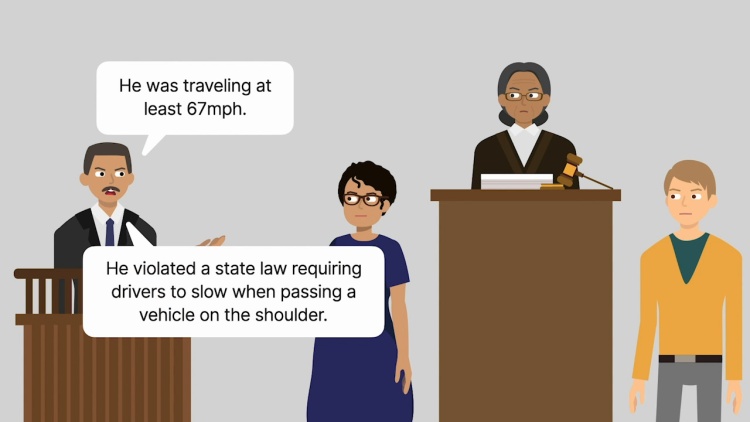Harber v. State
Texas Court of Appeals
594 S.W.3d 438 (2019)
- Written by Robert Cane, JD
Facts
Christopher Harber (defendant) was a commercial driver. Harber was driving a mobile-home hauler when he struck a tow-truck driver, Travis Danner, who was in the right shoulder of the highway. The State of Texas (plaintiff) indicted Harber for manslaughter, alleging that Harber recklessly caused Danner’s death by driving a commercial vehicle without a valid driver’s license, driving at an unreasonable speed, failing to brake reasonably, failing to maintain his lane of traffic, and driving on an improved shoulder. The prosecution presented evidence that Harber’s commercial driver’s license had been suspended although it presented no evidence that Harber’s license had been suspended for unsafe driving or even that Harber lacked the driving skill to drive the hauler safely. The evidence showed that traffic was heavy at the time of the collision, but the prosecution did not present witness testimony that Harber had been driving erratically or unsafely. Further, there was neither evidence regarding Harber’s speed before hitting Danner nor evidence that Harber was driving faster than any other vehicles present. There was evidence that Harber failed to maintain a single lane and drove on the shoulder, causing the collision with Danner. However, Harber explained that he looked down for a second just before he drove onto the shoulder. No evidence suggests that the truck’s size, Harber’s speed, or Harber’s suspended license caused Harber to drive onto the shoulder. Regardless, a jury convicted Harber of criminally negligent homicide. Harber appealed, arguing that the evidence was not legally sufficient to support his conviction because the prosecution neither proved that Harber’s alleged criminal negligence created a substantial and unjustifiable risk that caused Danner’s death, nor did it show seriously blameworthy conduct constituting a gross deviation from the standard of ordinary care.
Rule of Law
Issue
Holding and Reasoning (Chapa, J.)
What to do next…
Here's why 907,000 law students have relied on our case briefs:
- Written by law professors and practitioners, not other law students. 47,100 briefs, keyed to 996 casebooks. Top-notch customer support.
- The right amount of information, includes the facts, issues, rule of law, holding and reasoning, and any concurrences and dissents.
- Access in your classes, works on your mobile and tablet. Massive library of related video lessons and high quality multiple-choice questions.
- Easy to use, uniform format for every case brief. Written in plain English, not in legalese. Our briefs summarize and simplify; they don’t just repeat the court’s language.





